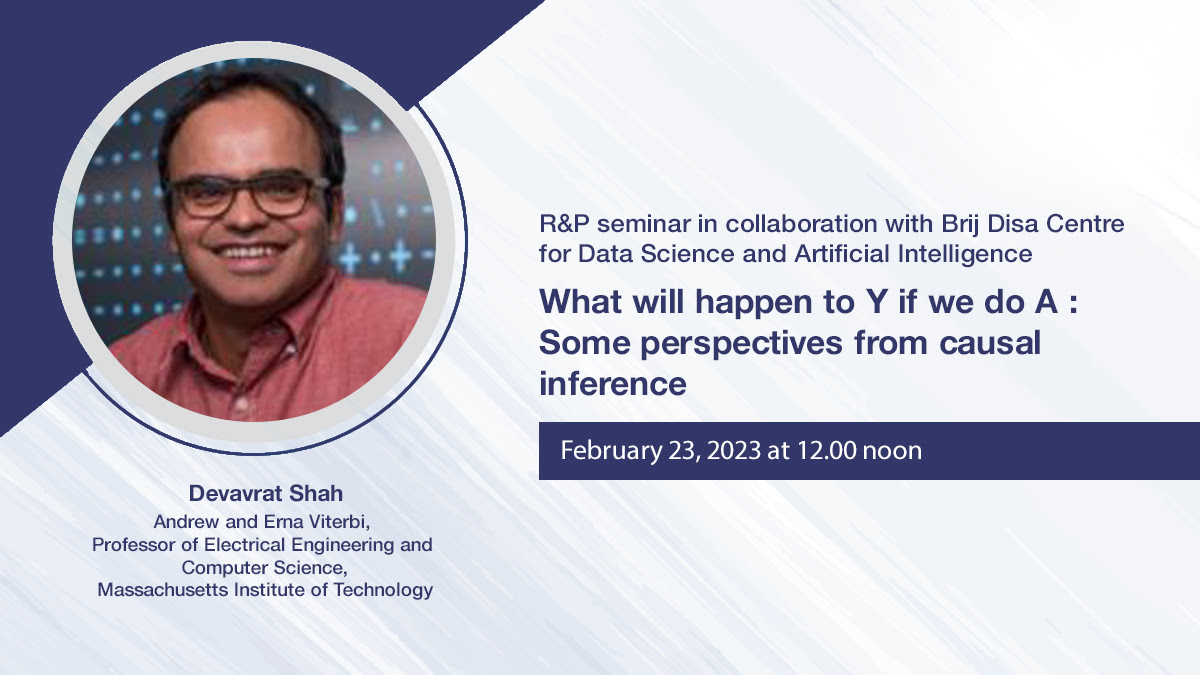
23/02/2023 - 23/02/2023

Abstract: Data-driven decision-making fundamentally requires answering counterfactual questions of the form: What will happen to Y if we do A? Examples abound: What will happen to a data center’s latency if a new congestion control protocol is used? What will happen to the probability of a power outage if a new transmission line is introduced in the electric grid? What will happen to a patient’s health if they are given a new therapy? Answering such counterfactual questions requires thinking carefully about the causal relationship between A and Y. The key challenge in doing so is tackling confounding, i.e., the hidden correlation between A and Y that might be present in observed data – colloquially, we refer to this challenge as ``correlation does not imply causation’’. In addition, modern datasets are inherently high-dimensional, noisy, and sparse, which adds to the challenge of building reliable causal models. The purpose of this talk is to provide a brief introduction to causal inference and do a survey of the rapidly growing modern statistical toolkit to learn causal relationships from data. We will introduce some of the canonical frameworks to define and learn causal relationships such as the Neyman-Rubin potential outcomes model, randomized control trials, instrumental variables and synthetic controls. We would conclude with a unified modern lens to view these various frameworks that we have introduced in our recent works: causal tensor completion. We will describe its application through empirical case-studies.
About the speaker: Devavrat Shah is Andrew (1956) and Erna Viterbi Professor of Electrical Engineering and Computer Science at MIT, where he has been teaching since 2005. He is currently the faculty director of the Deshpande Center for Tech Innovation. He was the founding director of the Statistics and Data Science Center at MIT between 2016 to 2020. His current research interests include algorithms for causal inference, social data processing, and stochastic networks. He is a distinguished alumnus of his alma mater, IIT Bombay. His research contributions have been recognized with several awards including the George B. Dantzig Dissertation award (2005), the ACM SIGMETRICS Rising Star Award (2008), and the INFORMS Erlang Prize (2010); in addition, his research has been recognized with a 2019 test of time award from ACM SIGMETRICS as well as best paper awards from many conferences and professional societies such as IEEE Infocom, ACM SIGMETRICS, NeurIPS, INFORMS APS, and INFORMS M&SOM. In 2013, he co-founded the machine learning start-up Celect (part of Nike) which helps retailers optimize inventory using accurate demand forecasting. In 2019, he co-founded Ikigai Labs with the mission of building a self-driving organization by empowering data business operators to make data-driven decisions with the ease of spreadsheets.
Please note: This is an offline event. Hence, no registration link.
